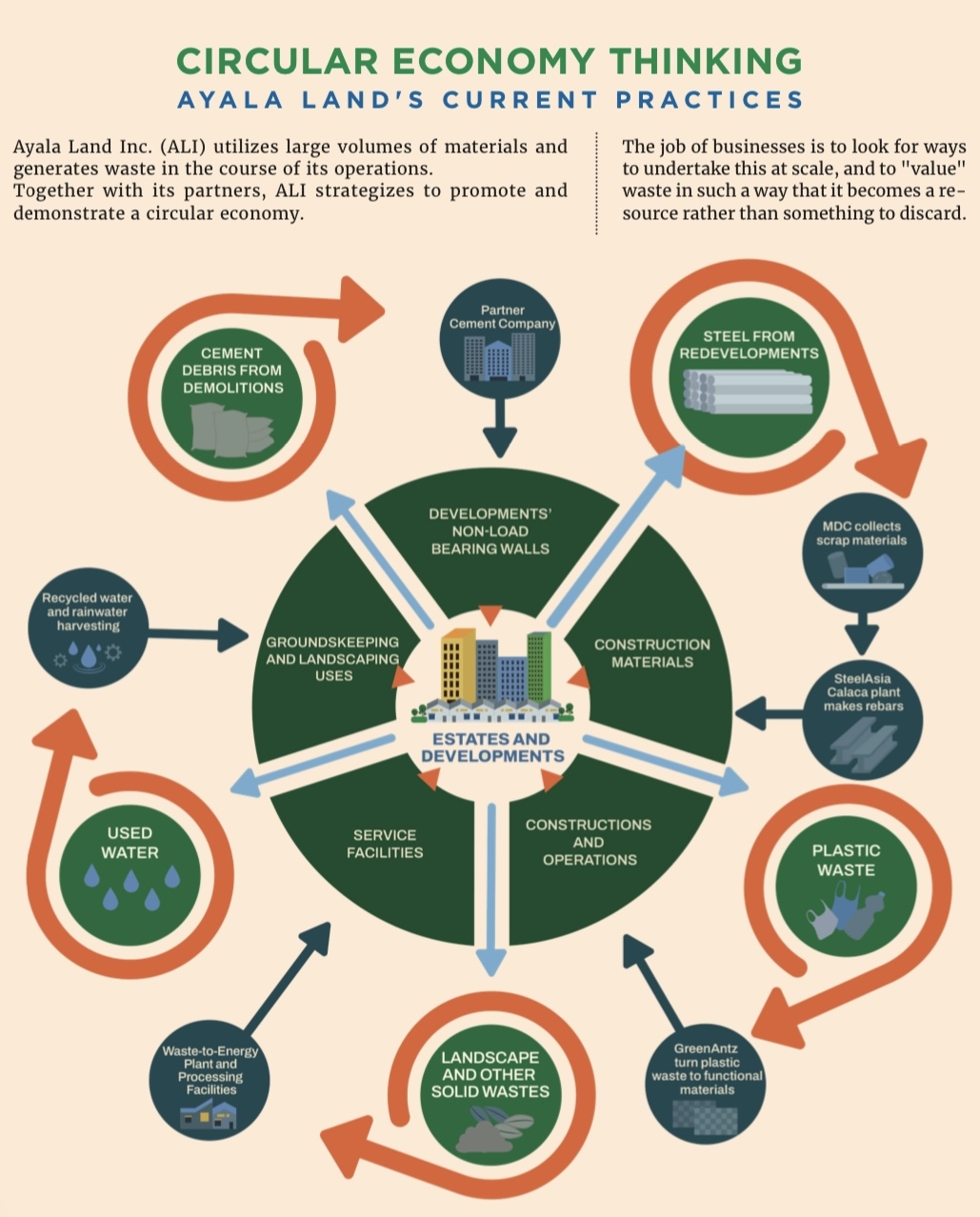Sustainable Futures: Ayala Land's circular economy leadership
Innovating sustainable practices by redefining 'waste' as resource
By Mat Richter

Achieving a circular economy starts with us. It can be as small as reusing bottles or as progressive as setting up a business for processing different waste into resource; needless to say, the time to act is now.
In a startling projection for 2025, the National Solid Waste Management Commission anticipates an annual waste production of 23.6 million tons in the Philippines, posing grave threats to us humans and the environment we live in.
Offering a sliver of hope to the otherwise worrying conditions our planet faces, real estate firm Ayala Land Inc. (ALI) is taking hold of the steering wheel for sustainability, viewing trash as potential resources and helping redefine what people would initially consider waste.
Sustainable scrap steel
Steel is a material that maintains its value through repeated use, such as in formwork or framing. When it becomes “scrap,” it can be melted and made into new steel without compromising quality — exemplifying a way to achieve a circular economy.
For Ayala Land, helping the environment can take many forms. In
2023, ALI reported using 62,000 tons of steel for its real estate projects, which is eight times the size of Eiffel Tower. Painting the silver lining, the firm found a way to turn waste into opportunity.
Ayala Land, alongside its construction arms MDC and major supplier SteelAsia, aims to procure rebars from SteelAsia's Calaca plant designed to process 100 percent recycled steel. The companies are collaborating with subcontractors to recover steel bars from ALI's redevelopment projects.
The firm reported that rebars account for around 47 percent of its
total emissions. By sourcing rebars from the Calaca plant, capable of
producing 500,000 tons of recycled steel yearly, the company could cut its overall emissions by one-third.
Waste management for the planet
ALI started its circular economy journey by partnering with GreenAntz, a social enterprise that turns clean used plastics into useful materials. In 2023, Ayala Land used 383 tons of recycled plastic waste for operational and construction purposes, including storage pallets, eco-pavers, stormwater storage tanks, fencing, and sidewalks — proving that waste can still be functional.
Regarding landscape waste, ALI converted 216 tons last year, mainly
from Nuvali and Makati, to power a laundry facility in Cavite, which
serves Seda Nuvali and neighboring hotels. For food waste and
compostables, the firm plans to decongest municipal landfills and
“roll out waste diversion programs for different waste profiles across
its properties.”
Meanwhile, for water conservation, the company has long implemented the use of low-flow fixtures and rainwater harvesting
for groundkeeping and landscaping uses. According to the firm, the
efforts have resulted in a water use index lower than ASEAN bench-
marks.
With Earth Day two days ahead of us, Ayala Land’s commitment to sustainability helps prove that businesses can partake in recycling initiatives, no matter how small or monumental. Its story serves as a testament to the developing movement of seeing trash as resources rather than waste at first glance, helping achieve a circular economy where reusing becomes the norm.